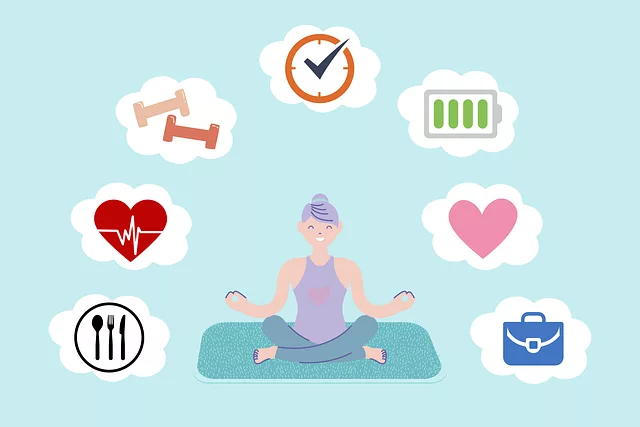The RFM (Recovery, Flexibility, and Mastery) framework is a modern approach to mental health treatment, focusing on self-care, emotional healing, and resilience. Kaiser's inpatient facilities utilize this innovative model, known for its comprehensive strategies in managing complex mental health needs. By combining tailored therapeutic interventions like Stress Management, Mental Wellness Coaching, and Self-Care Routine Development, Kaiser fosters a supportive environment that enhances patient outcomes and promotes overall mental wellness. Resilience building exercises are a key strength, empowering patients with tools to overcome challenges, improving well-being for both patients and healthcare providers.
“Uncover the power of Resilience-focused treatments with this comprehensive guide. We explore RFM (Recovery-oriented Financial Management), a revolutionary approach in mental health care, especially within the context of superior inpatient facilities like those offered by Kaiser. This article delves into the role of RFM in enhancing patient outcomes, drawing from the successful Kaiser Inpatient Mental Health Model. By understanding these strategies, we can empower individuals on their journey towards resilience and improved mental well-being.”
- Understanding RFM and Its Role in Mental Health Treatment
- The Kaiser Inpatient Mental Health Model: A Deep Dive
- Resilience Building Exercises: Enhancing Patient Care
Understanding RFM and Its Role in Mental Health Treatment

Understanding RFM, or Recovery, Flexibility, and Mastery, is essential in modern mental health treatment, especially within institutions like Kaiser’s inpatient facilities. This framework goes beyond traditional therapy by focusing on key aspects that contribute to long-term mental wellness. RFM empowers individuals to navigate their emotional healing processes by enhancing flexibility in thinking and behaviour, enabling them to master challenges and setbacks.
By integrating Self-Care Practices into daily routines, patients can foster resilience, a critical component of their overall Mental Wellness journey. The Superior approach to treatment encourages individuals to embrace change, develop coping strategies, and cultivate a sense of control over their mental health, ultimately leading to improved outcomes and enhanced quality of life.
The Kaiser Inpatient Mental Health Model: A Deep Dive

The Kaiser Inpatient Mental Health Model is a superior approach that has gained recognition for its comprehensive and effective treatment strategies. This model is designed to address the complex needs of individuals struggling with mental health issues, offering a holistic view of recovery. At its core, it emphasizes not just symptom reduction but also the development of long-lasting coping mechanisms and resilience. Patients are supported through various therapeutic interventions tailored to their unique challenges.
This superior method goes beyond traditional treatments by incorporating Stress Management techniques, Mental Wellness Coaching Programs, and Self-Care Routine Development as integral parts of the recovery process. By fostering a supportive environment, patients gain valuable tools to navigate life’s stressors and promote overall mental wellness. The Kaiser model is a testament to the power of tailored interventions in enhancing individual well-being and resilience.
Resilience Building Exercises: Enhancing Patient Care

Resilience building exercises play a pivotal role in enhancing patient care, especially within the context of inpatient mental health services, such as those offered by Kaiser. These exercises are designed to equip patients with the tools and mindset necessary to navigate and overcome challenges effectively. By fostering resilience, healthcare providers can significantly improve patient outcomes and overall well-being.
Inpatient mental health facilities, like Kaiser, often incorporate these practices into their Healthcare Provider Cultural Competency Training programs. The goal is to not only improve self-care practices among staff but also integrate them into the care plans of patients. Mental Health Education Programs Design that emphasize resilience can lead to more adaptive coping strategies, improved stress management, and better emotional regulation for both patients and healthcare providers. Such initiatives contribute to a positive and supportive environment, ensuring that individuals receiving treatment feel empowered to manage their mental health effectively both during and after their stay at the facility.
Resilience building exercises, as integral components of mental health treatment, are gaining recognition for their potential to transform patient outcomes. The Kaiser Inpatient Mental Health Model, known for its superior care approach, incorporates these exercises, demonstrating a commitment to enhancing patient resilience. Understanding RFM (a crucial framework) and its role in therapy, alongside the exploration of effective exercises, equips professionals with powerful tools to support individuals navigating mental health challenges. This comprehensive strategy ensures patients develop the necessary coping mechanisms for long-term well-being.






